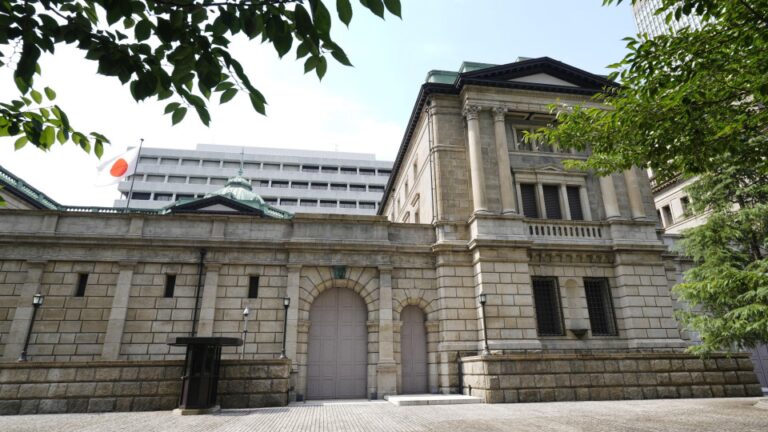The business sentiment index for major Japanese automakers rose two points to 13 in June, marking the first improvement in two quarters, as the impact of a scandal over falsifying auto safety data eased but rising costs cast a shadow over the outlook, Bank of Japan data showed Monday.
The index among non-manufacturing sectors, including service providers such as hoteliers, deteriorated to 33 in June from 34, the first decline in 16 quarters after a strong run of improvements mainly driven by a recovery in inbound tourism. Many companies are now reporting concerns about inflation and labor shortages, according to the quarterly Tankan survey.
The Tankan Index represents the percentage of companies reporting favorable conditions minus the percentage reporting unfavorable conditions. The average market forecast for the Large Manufacturers Index, compiled by Kyodo News, was for an improvement to 12.
The data highlighted a divergence in how companies and sectors are coping with rising energy and commodity costs, further compounded by the weak yen.
Sentiment improved in commodity-related sectors that were able to pass on costs, such as pulp and paper, but the food and steel sectors became less optimistic on inflation fears.
“The business climate is generally good,” said Yoshimasa Maruyama, chief economist at SMBC Nikko Securities Inc.
“The question is not if but when the impact of the auto scandal will end for manufacturers. Many companies have been able to pass on their costs by increasing their prices, which is a positive development, but retailers are struggling with weak consumer demand,” he said.
Daihatsu Motor Co. suspended production after admitting in December to faking safety data, before fully resuming production in May. This fraud was followed by revelations of improper vehicle certification testing at Toyota Motor Corp. and Mazda Motor Corp., among others, leading to the halting of deliveries of some models.
Although the mood among automakers remains positive, the index fell one point to 12.
Retail confidence, however, deteriorated to 19, down 12 points, as Japanese households have yet to feel the impact of inflation-driven real wage growth.
The continued depreciation of the yen, particularly against the US dollar, means that resource-poor Japan will continue to see its import costs rise, accelerating inflation.
The weak yen, however, is a boon for exporters, boosting their overseas profits when they repatriate them. It also makes travel and shopping in Japan cheaper for foreign tourists.
Operators of hotels, restaurants and those providing face-to-face services remained optimistic, despite a slight decline in the sector index.
Japanese companies expect the dollar to trade at 144.77 yen in fiscal 2024, up sharply from 141.42 yen in the previous survey in March. The dollar rose above 161 yen at one point last week, amid heightened market vigilance over possible intervention by Japanese authorities to slow the yen’s sharp decline.
Japan’s economy contracted by a real annualized 2.9 percent in the January-March quarter, rather than a 1.8 percent contraction, revised data showed Monday, underscoring weak domestic demand.
Nevertheless, Japanese companies plan to increase their capital expenditure by 8.4% by next March, according to the Bank of Japan survey, after a 10.6% increase in fiscal 2023. The figure covers all sectors and includes small and medium-sized companies.
Looking ahead, manufacturers were more optimistic, with confidence improving from 13 to 14, while non-manufacturers expected a deterioration of 6 points to 27.
The latest data will be among the elements assessed at the BOJ’s monetary policy-setting meeting at the end of July.
“Rising prices and a weakening yen can set the stage for the BoJ to act, but it must also take into account weak consumption, as shown for example by falling confidence among retailers,” said Maruyama of SMBC Nikko.
Markets are waiting to see how much the Japanese central bank will scale back its purchases of Japanese government bonds, with its board members recently suggesting that interest rates could be raised again if a weak yen leads to higher inflation.
The BOJ surveyed 9,076 companies, of which 99.2% responded between May 29 and Friday.
Related coverage:
Confidence among major Japanese decision-makers deteriorates for the first time in four quarters, according to the BOJ
Yen hits new 37-year low at 161 against dollar on intervention risk
Government maintains economic outlook in June, but warns of rising rates abroad


